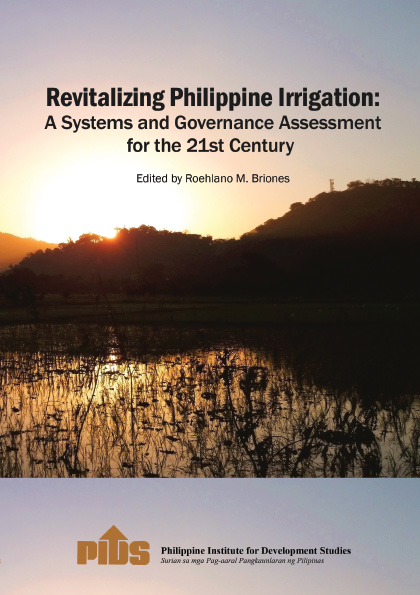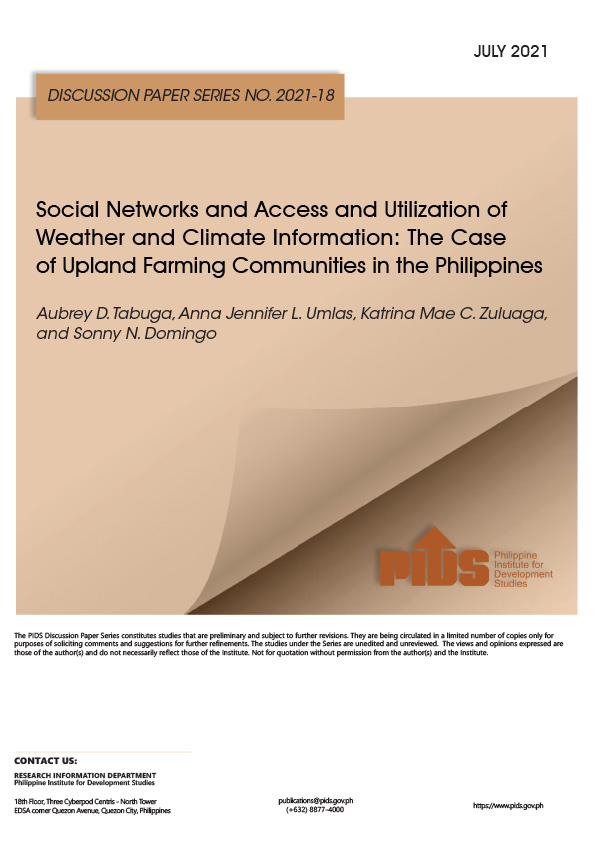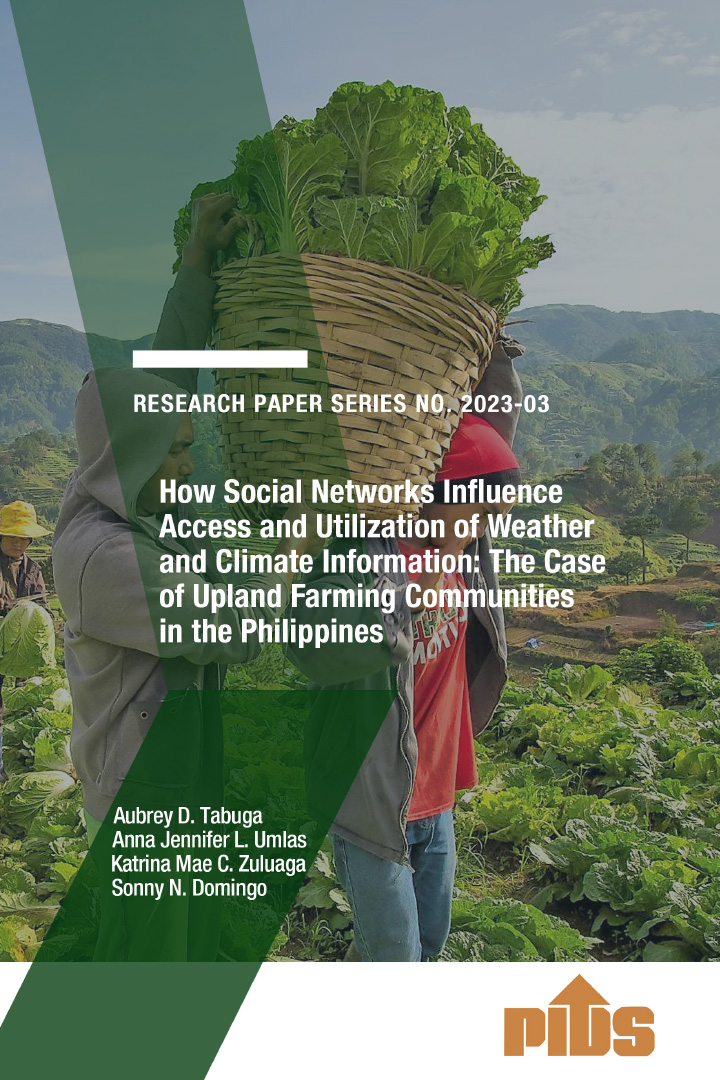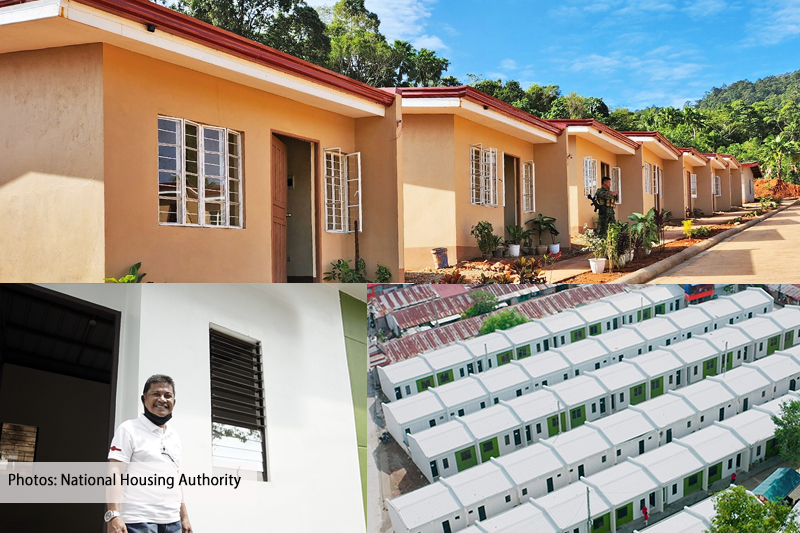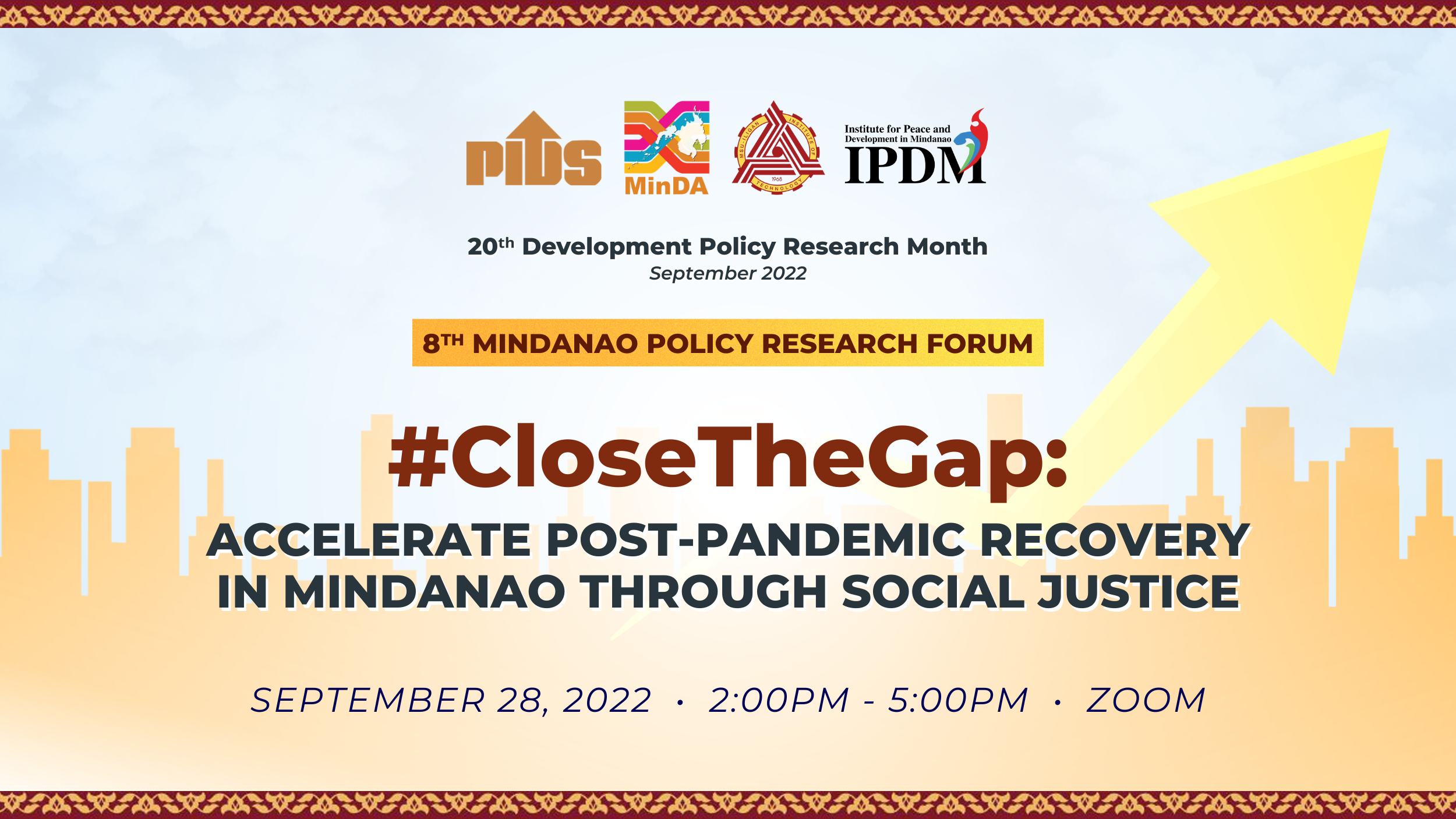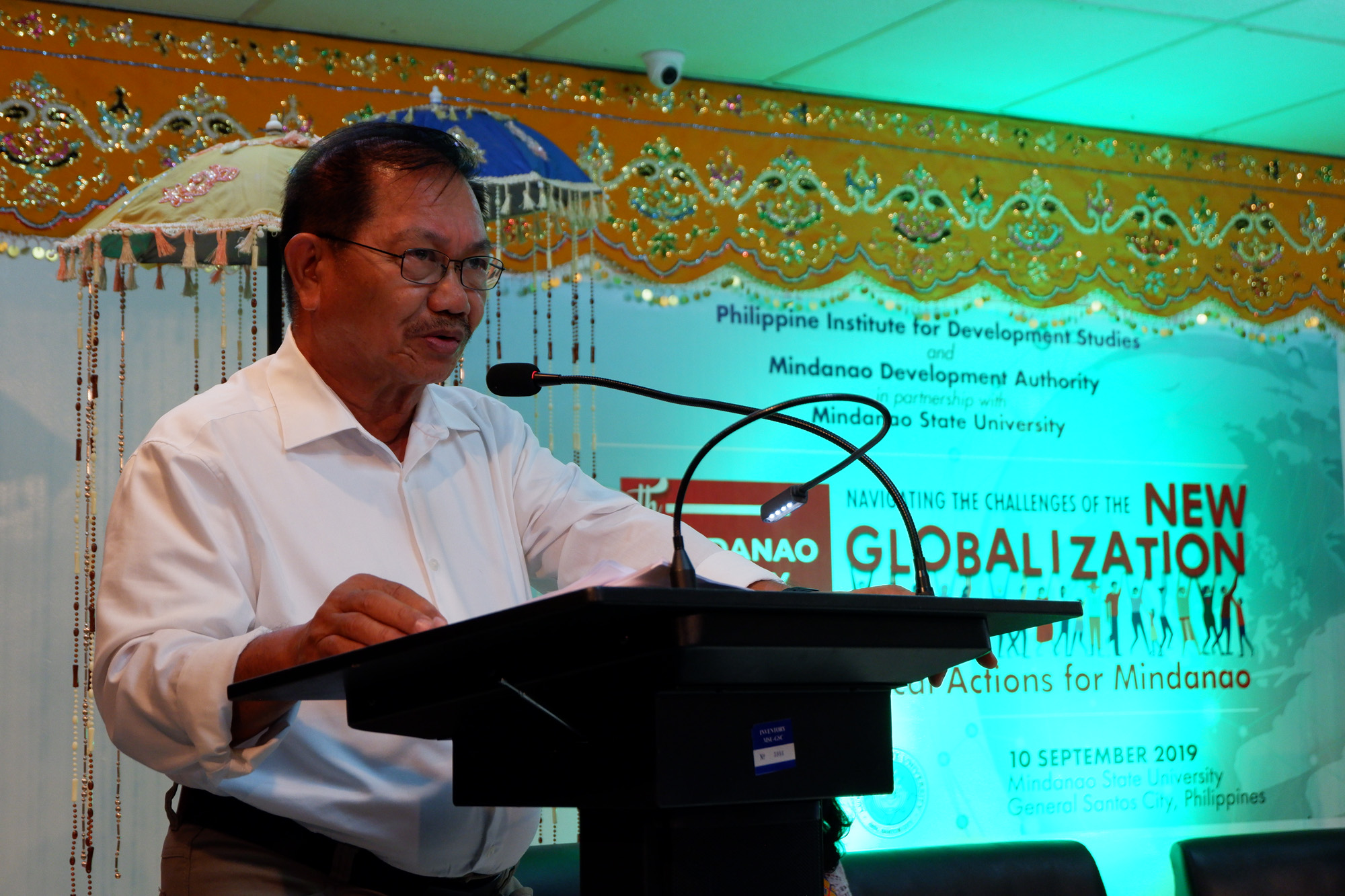
Local farmers in Mindanao need to adopt new technologies in agriculture, particularly in rice farming, to increase productivity.
This is according to Secretary Emmanuel Piñol, the newly-installed head of the Mindanao Development Authority (MinDA) and former chief of the Department of Agriculture, during the Fifth Mindanao Policy Research Forum (MPRF) held in General Santos City recently with the theme “Navigating the Challenges of the New Globalization: Local Actions for Mindanao”.
“The New Globalization is a double-edged sword. If you are prepared for it [then] you will benefit from it. [But] if you are not prepared, woe to you. [To be able] to survive the New Globalization, we have to capacitate our stakeholders, especially in the area of agriculture. We have to adopt modern technologies, prepare [our farmers], [as well as] organize and empower them. This is the only way we could benefit from the New Globalization,” said Piñol.
He expressed confidence that Mindanao could serve as the country’s front door in terms of exporting rice to international markets. “We are the only area in the country that is not often hit by typhoons compared to Northern Luzon. This is our advantage. [Also,] our soil is more fertile than that of Luzon,” he said.
At the national level, Piñol claimed that “The Philippines can be rice-sufficient.” He said this can be achieved by using five simple measures: good-quality seeds (hybrid and inbred), sufficient water for irrigation, soil, modern machinery, and access to capital for financing.
“We have 4.9 million hectares of rice farms harvested every year. If we can only increase our yield by 2 metric tons of rice per hectare per harvest, that would be 9.8 million metric tons of rice. Sobra-sobra na yun. Theoretically, it is attainable,” he pointed out.
However, Piñol lamented that investments in agriculture remain low in the Philippines. “Ang problema, just like in any business, agriculture needs investment. You need water, good seeds, fertilizers, machinery, and capital [but] these were absent in the program [of the government],” he said.
“Ang kalaban natin like Viet Nam and Thailand are supported by their governments. May mga hidden subsidies. In fact, they have their own agencies that handle rice exports. Viet Nam, for example, has Vinafood, [a state-owned corporation tasked by the Vietnamese government to export rice in Southeast Asia],” Pinol further stated.
Another issue, according to Pinol, is that big traders dominate the market and they are making huge profits from importing rice. “The landed cost of importing rice now is about PHP 23.00 per kilo. The selling price in the market is PHP 40-50 a kilo. Ang tinutubo nila ay PHP 10.00 kada kilo. Sino ang trader na hindi sasali diyan? So nobody wants to buy the local rice anymore because the marginal profit is very thin and the risks are high. You have to dry it, mill it, and keep it in in your warehouse. Whereas, if you import the rice, you only have to ship it into the market,” he explained.
Piñol also said that some government interventions are off-target. While it provides financial subsidies and fertilizers to local farmers, the absence of a market where they can sell their produce is still a major issue.
Given these challenges, Pinol urged government to intensify its support and provide the necessary interventions to local farmers. “I believe that Filipino farmers could compete [internationally] if only they are supported by government,” Pinol said.
In particular, he stressed the need to capacitate local farmers and elevate them to the level of processors and marketers of their own products.
“Make them strong, empower them, improve their productivity, to the point that the cost of production would go down. For so long, they have remained as mere producers of raw materials, therefore, they are dependent on middlemen and processors,” he pointed out.
The MPRF is a regular event jointly undertaken by PIDS and the Mindanao Development Authority (MinDA), in partnership with a local university. This year, PIDS and MinDA collaborated with the Mindanao State University – GenSan campus. Launched in 2015, the MPRF is part of a series of activities organized every September to celebrate the Development Policy Research Month. ###
This is according to Secretary Emmanuel Piñol, the newly-installed head of the Mindanao Development Authority (MinDA) and former chief of the Department of Agriculture, during the Fifth Mindanao Policy Research Forum (MPRF) held in General Santos City recently with the theme “Navigating the Challenges of the New Globalization: Local Actions for Mindanao”.
“The New Globalization is a double-edged sword. If you are prepared for it [then] you will benefit from it. [But] if you are not prepared, woe to you. [To be able] to survive the New Globalization, we have to capacitate our stakeholders, especially in the area of agriculture. We have to adopt modern technologies, prepare [our farmers], [as well as] organize and empower them. This is the only way we could benefit from the New Globalization,” said Piñol.
He expressed confidence that Mindanao could serve as the country’s front door in terms of exporting rice to international markets. “We are the only area in the country that is not often hit by typhoons compared to Northern Luzon. This is our advantage. [Also,] our soil is more fertile than that of Luzon,” he said.
At the national level, Piñol claimed that “The Philippines can be rice-sufficient.” He said this can be achieved by using five simple measures: good-quality seeds (hybrid and inbred), sufficient water for irrigation, soil, modern machinery, and access to capital for financing.
“We have 4.9 million hectares of rice farms harvested every year. If we can only increase our yield by 2 metric tons of rice per hectare per harvest, that would be 9.8 million metric tons of rice. Sobra-sobra na yun. Theoretically, it is attainable,” he pointed out.
However, Piñol lamented that investments in agriculture remain low in the Philippines. “Ang problema, just like in any business, agriculture needs investment. You need water, good seeds, fertilizers, machinery, and capital [but] these were absent in the program [of the government],” he said.
“Ang kalaban natin like Viet Nam and Thailand are supported by their governments. May mga hidden subsidies. In fact, they have their own agencies that handle rice exports. Viet Nam, for example, has Vinafood, [a state-owned corporation tasked by the Vietnamese government to export rice in Southeast Asia],” Pinol further stated.
Another issue, according to Pinol, is that big traders dominate the market and they are making huge profits from importing rice. “The landed cost of importing rice now is about PHP 23.00 per kilo. The selling price in the market is PHP 40-50 a kilo. Ang tinutubo nila ay PHP 10.00 kada kilo. Sino ang trader na hindi sasali diyan? So nobody wants to buy the local rice anymore because the marginal profit is very thin and the risks are high. You have to dry it, mill it, and keep it in in your warehouse. Whereas, if you import the rice, you only have to ship it into the market,” he explained.
Piñol also said that some government interventions are off-target. While it provides financial subsidies and fertilizers to local farmers, the absence of a market where they can sell their produce is still a major issue.
Given these challenges, Pinol urged government to intensify its support and provide the necessary interventions to local farmers. “I believe that Filipino farmers could compete [internationally] if only they are supported by government,” Pinol said.
In particular, he stressed the need to capacitate local farmers and elevate them to the level of processors and marketers of their own products.
“Make them strong, empower them, improve their productivity, to the point that the cost of production would go down. For so long, they have remained as mere producers of raw materials, therefore, they are dependent on middlemen and processors,” he pointed out.
The MPRF is a regular event jointly undertaken by PIDS and the Mindanao Development Authority (MinDA), in partnership with a local university. This year, PIDS and MinDA collaborated with the Mindanao State University – GenSan campus. Launched in 2015, the MPRF is part of a series of activities organized every September to celebrate the Development Policy Research Month. ###

